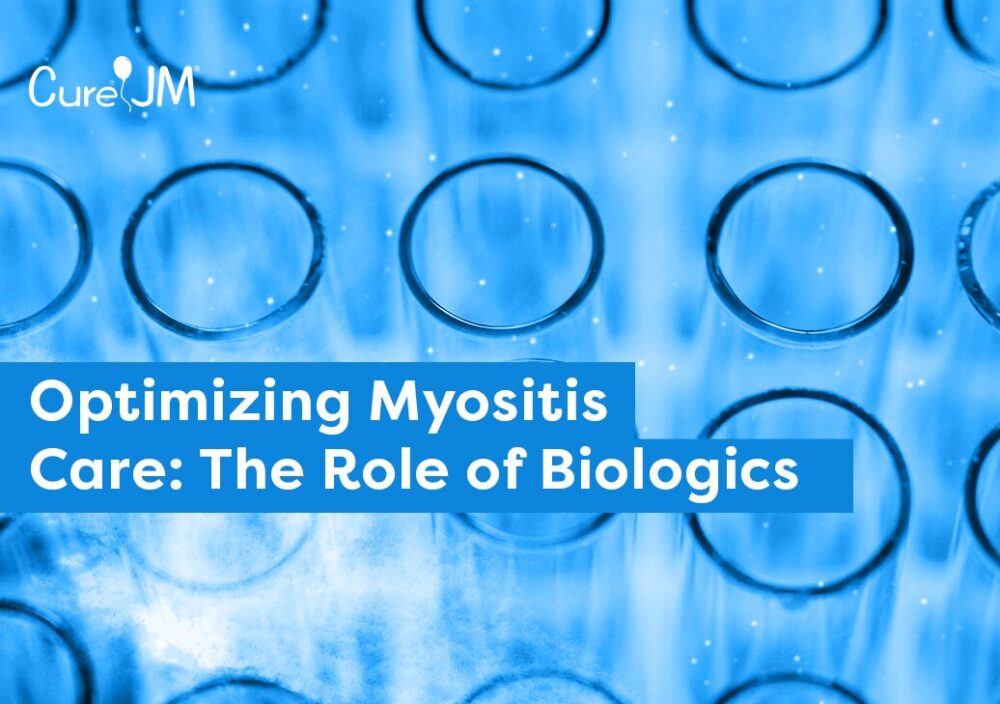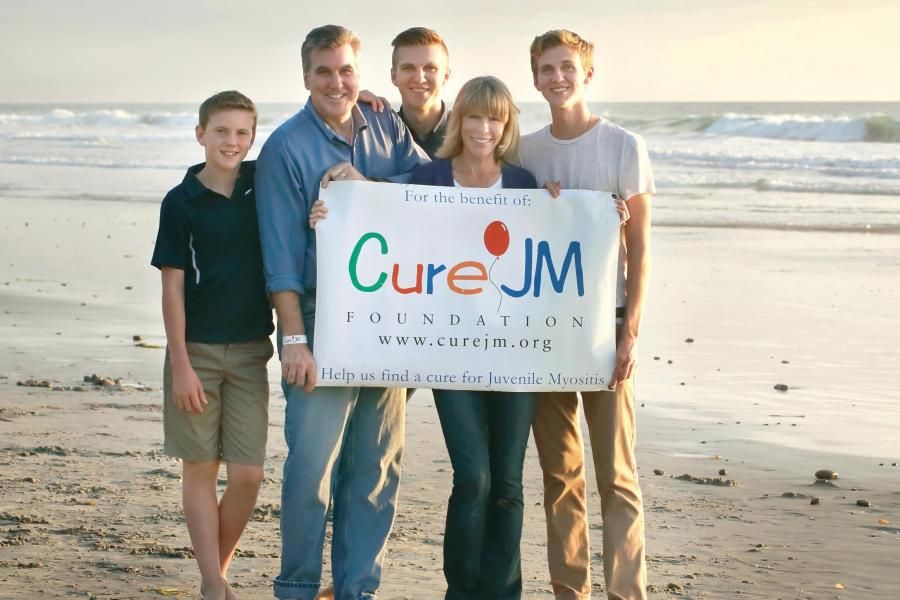Biologics are a therapies that derived from living cells or through biological processes. They are a promising new class of drugs used to treat myositis. Unlike traditional medications that suppress the entire immune system, biologics target specific parts of the immune system involved in the inflammatory process.
A few notes:
- Biologics are not typically a first-line treatment for myositis. They are typically used only after other medications, such as corticosteroids and methotrexate, have not been effective.
- Biologics are given by injection or infusion.
- The long-term safety of biologics is still being studied.
Types of biologics used in myositis:
- B-cell depletion therapy: This type of biologic targets B cells, which are immune system cells that produce antibodies. Rituximab (Rituxan) is a B-cell depletion therapy that has been shown to be effective in some patients with myositis. Rituximab is used in other indications, in both adult and pediatrics.
- TNF-alpha inhibitors: These drugs block the action of tumor necrosis factor-alpha (TNF-alpha), a protein that plays a key role in inflammation. TNF-alpha inhibitors, such as etanercept (Enbrel), adalimumab (Humira), and infliximab (Remicade), are not currently FDA-approved for myositis, but they have shown promise in some studies. Etanercept was FDA approved for JIA in 1996 and adalimumab was approved not long after. Infliximab is an infusion given at the hospital. Etanercept and adalimumab are given by injection at home.
- Abatacept (Orencia). FDA approved for JIA, it is considered pretty safe and effective in JIA. Can be administered at home (by injection) or in the hospital (by infusion).
- Other interleukin-1 (IL-1) receptor antagonists, are also being studied for use in myositis. (Anakinra (Kineret), Canakinumab (Ilaris), Rilonacept (Arcalyst)). These drugs have shown promise in some early studies, but more research is needed to determine their long-term safety and efficacy in myositis.
Benefits of biologics in myositis:
- May be more effective than corticosteroids in controlling muscle inflammation and pain
- May allow for a lower dose of corticosteroids, which can reduce side effects
- May improve muscle strength and function
- May improve quality of life
Potential side effects of biologics:
- Increased risk of infection
- Allergic reactions
- High cost
Some of the many publications for review:
- RIM, Rituximab in Myositis:
- TNF-alpha inhibitors in myositis:
- Abatacept.
- AID, Abatacept in Dermatomyositis trial, https://pubmed.ncbi.nlm.nih.gov/36657109/




